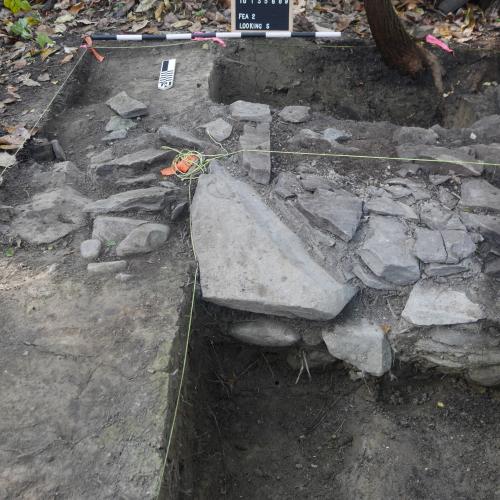Agriculture has been central to the cultural history of the Hudson River Valley from the first indigenous farmers to 17th-century Dutch farms, and finally through the development of modern mechanized farming during the 19th century. Regrettably, the role of free African American farmers in the agricultural development of New York State has received little to no attention nor recognition.
African Americans provided much of the manual labor on large farms throughout the 18th century and a small percentage continued as independent farmers in New York following emancipation. The Powell family farmstead represents a rare example of an African-American-owned farm in Albany County. Three generations of the Powell family lived and worked on this farm which eventually expanded to 40 acres.
Archaeological excavations at the site have documented the expansion of the Powell house as their fortunes improved into the 1880s. Althought the Powell family ultimately lost their farm like so many other African American farmers, present-day public and private partnerships should work to preserve these important heritage sites for future generations before they are gone forever.
Interested in learning more about the history and archaeology of the Powell Farmstead? Take a guided virtual tour of the site through this video series hosted by NYSM Historical Archaeologist Michael Lucas: http://www.nysm.nysed.gov/black-history-month/thomas-powell-farmstead
Included below are photos of a silver spoon with Hannah Elizabeth Powell’s (nee Kilbourne) initials and a Stone Chimney foundation from the Powell Farmstead site.






